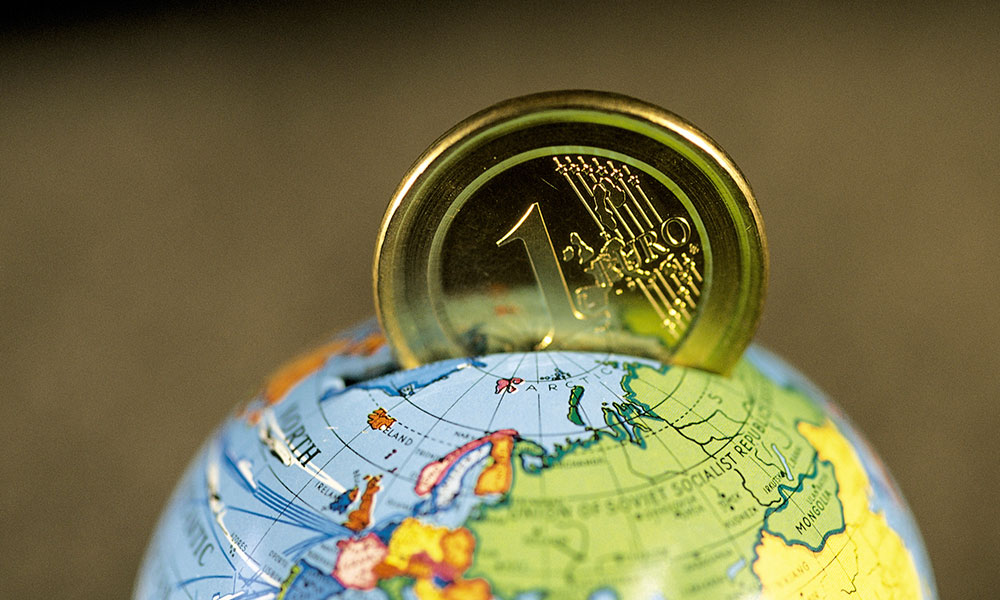
Euro’s Shrinking Value Brings Good and Bad Travel News
The euro's recent decline, coming at a time when the U.S. dollar is stronger than it's been in years, could make it cheap to fly internationally. But on the downside, it could discourage foreign travelers from coming to the U.S., according to associations in the travel sector.
Depending on what side of the ocean you’re on, the euro’s decline—and correspondingly, the dollar’s rise—could mean good or bad things for travelers.
Now’s a great time to get a cheap flight to Europe, but if your U.S.-based association’s goal is to get Europeans to sign up for your events, it’s likely to be more difficult.
Currently, the exchange rate for the euro is $1.16, one of the lowest ever. And there are concerns that the euro and the dollar could reach parity, which could hurt travel into the U.S., along with industries such as manufacturing.
A slightly stronger dollar coupled with lower airfares during the shoulder and off-peak times make traveling to Europe more attractive than it has been in some time.
“We’re fighting a double whammy. Not only is the dollar going up and making things more expensive, Europe as a whole is not doing well,” New York State Restaurant Association board member Jeremy Merrin, a restaurant owner in New York City, told Reuters this week.
Businesses with international reach—such as Avon, Expedia, and Johnson & Johnson—may feel direct pain from the strengthening dollar because of the cost pressure the exchange rate will put on exports.
But the National Association of Manufacturers can see the issue from both sides.
“The dollar is strengthening in many ways for the right reasons, because we’re one of the brighter spots in the world. That will present a challenge in terms of growing exports, but at least to the extent we’re strengthening it’s because the U.S. economy is getting better,” NAM chief economist Chad Moutray told The New York Times earlier this month.
Reassessing Your Trip
So what does this mean for travel? A November study from the Global Business Travel Association Foundation noted that the European market was on an upswing on the business-travel front, and that trend is continuing into 2015.
“We still face many hurdles, but it appears the tides are gradually changing for economies all over Europe. This will contribute to a strong 2014 and 2015 for business travel throughout the region,” Catherine McGavock, GBTA’s regional director for Europe, said in a news release.
The U.S. Travel Association, meanwhile, noted that the United States has such culturally diverse regions that an unfavorable exchange rate may not be enough to scare travelers away.
“The value of the dollar will have some impact, but I think travel will be less impacted than other goods and services, where a piece of steel is a piece of steel,” David Huether, the association’s senior vice president for research, told The Times.
Long story short: If you’re considering a trip to Europe, now’s the time to buy—especially as recent terror attacks and threats on the continent may persuade some airlines to offer discounts.
“A slightly stronger dollar coupled with lower airfares during the shoulder and off-peak times make traveling to Europe more attractive than it has been in some time,” Jeffrey Eslinger, vice president of the Travel and Tourism Research Association, told U.S. News and World Report. “If there are continued terror threats and related activity in Western Europe, we may also see some discounting to stimulate travel.”
(iStock/Thinkstock)






Comments